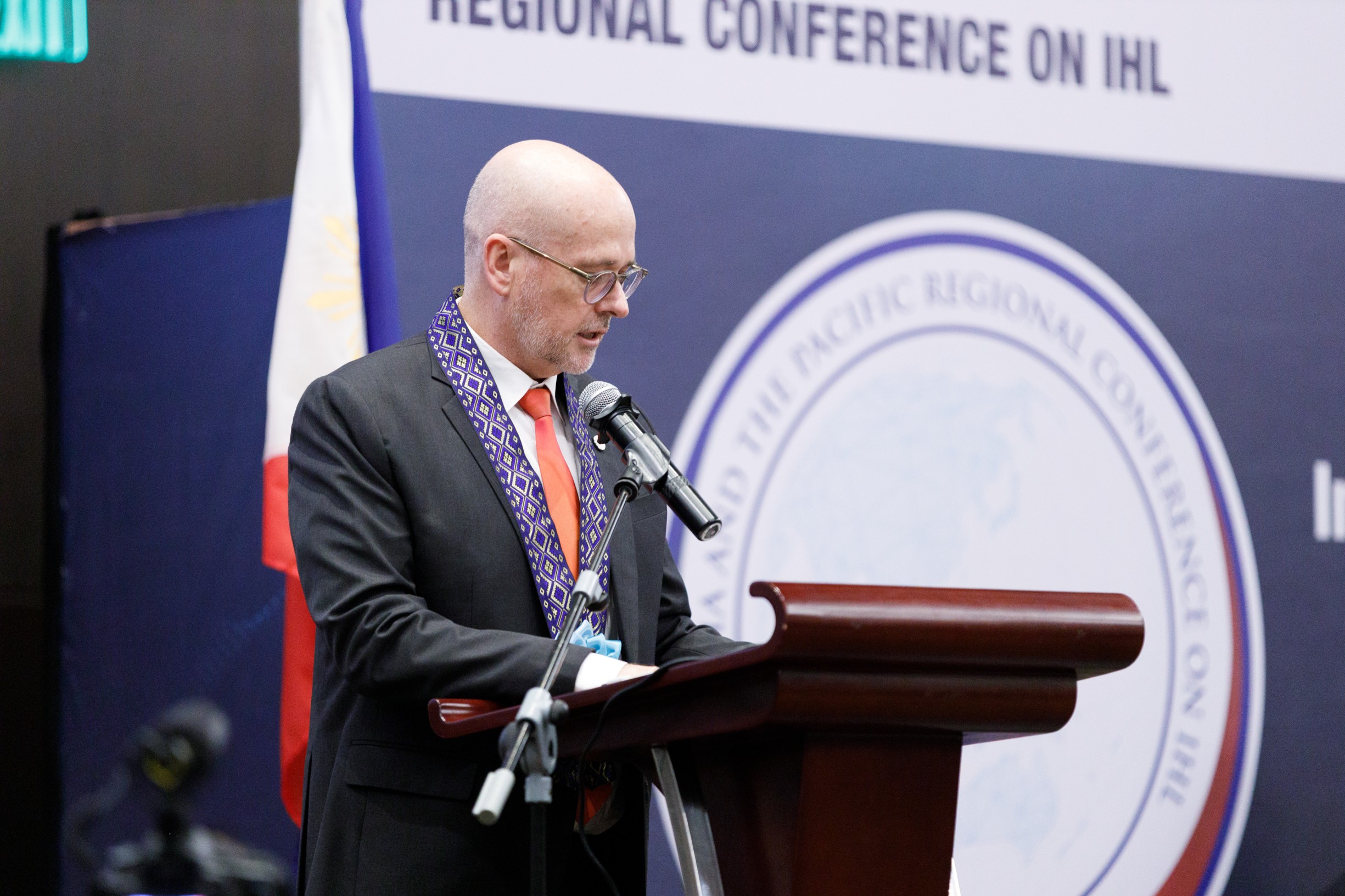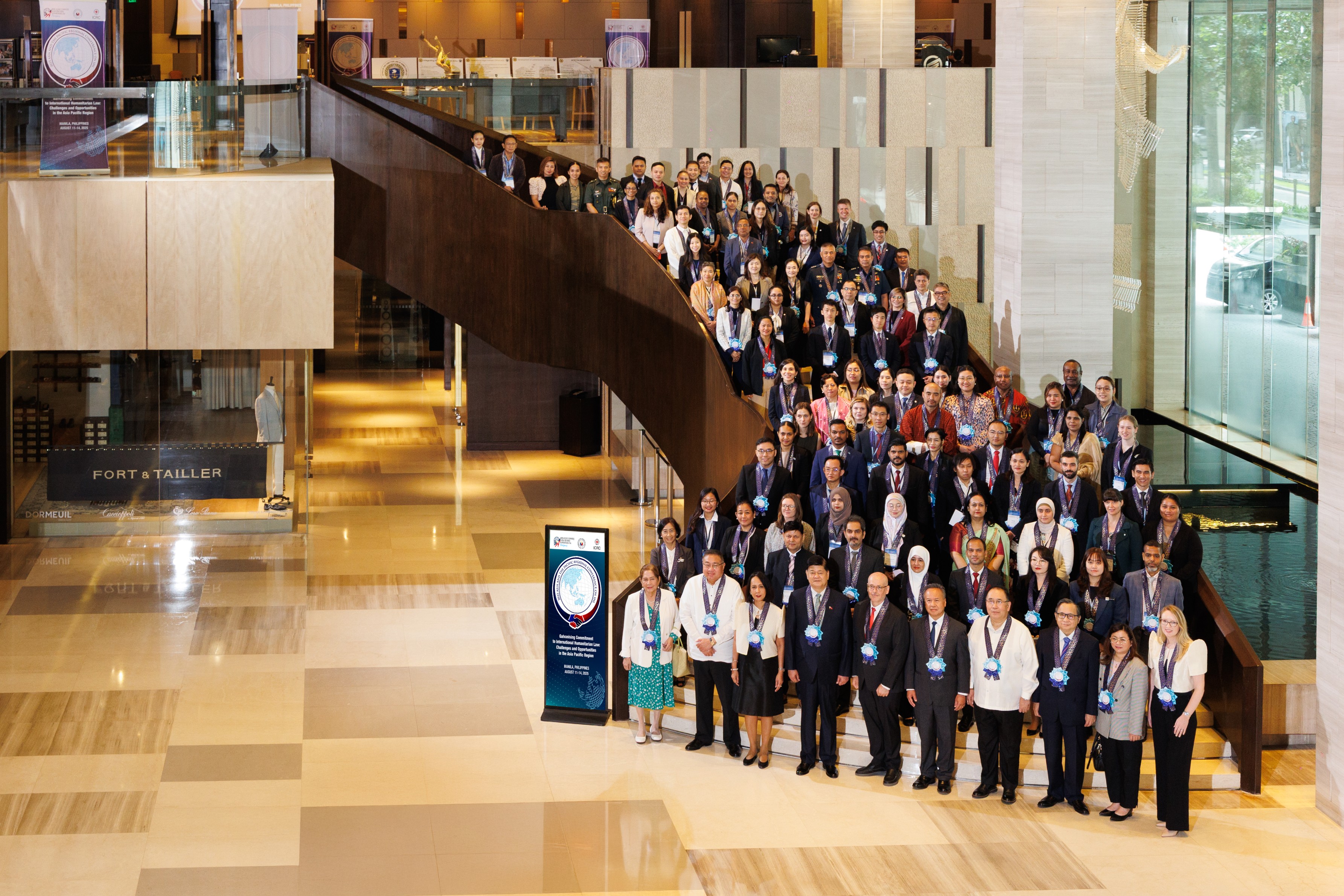Manila (ICRC) -At least 24 states from the Asia Pacific region have committed to greater political support for international humanitarian law (IHL), or the rules of war.
This was agreed upon by their representatives during an IHL regional conference in Manila, themed "Galvanising Commitment to International Humanitarian Law: Challenges and Opportunities in the Asia Pacific Region." The annual event, held from 11 to 14 August 2025, was co-hosted by the Government of the Republic of the Philippines and the International Committee of the Red Cross (ICRC), with support from the Philippine Inter-Agency Committee on IHL. Different states host the conference each year.
"This conference allowed states in this region to strengthen their dialogue and partnership on key IHL issues in our world today. It served as a venue for participants to discuss the challenges that they have faced in relation to IHL as well as its key legal frameworks; while sharing good practices, lessons learned and achievements in the domestic implementation of the law," said Johannes Bruwer, head of delegation of the ICRC in the Philippines.
"The conference is one of several platforms of our work to promote respect for IHL and its integration in law and policy among states or parties to the conflict. All states around the world are parties to the Geneva Conventions and they have an obligation to respect and ensure respect for IHL in policy and on the ground," he added.

"In an era where we are confronted with more than 130 active armed conflicts worldwide around the globe, both international and non-international, adherence to the rules of war is a humanitarian imperative," said Johannes Bruwer, Head of Delegation of ICRC in the Philippines, in his opening remarks during the conference. Photo: Alex Ruelo/ICRC
Participants engaged in discussions that put into sharp focus critical humanitarian issues-from the protection of health care facilities and workers to the rights of persons in the hands of parties to conflict. They examined how states can strengthen their implementation of IHL obligations, and how international law continues to evolve to meet the challenges of warfare at sea. Humanitarian disarmament and the responsible use of information and communication technologies in conflict were also included in the agenda.
There are around 130 ongoing armed conflicts in the world, with notably higher violations of IHL or the rules of war. There is a need for states to create an environment where IHL becomes of primary importance, to prevent the enormous and lasting humanitarian consequences of conflicts. The conference's host country for this year, the Philippines, has ratified around 35 treaties and implemented domestic laws to support IHL. Early this year, it launched the Inter-Agency Committee on IHL, making the Philippines one of four members of the Association of Southeast Asian Nations to have a permanent national committee on IHL.
The regional conference provides participants with an opportunity to engage in substantive discussions in relation to the global initiative to galvanise political commitment to IHL, which was launched on 27 September 2024 by the ICRC, together with Brazil, China, France, Jordan, Kazakhstan and South Africa. The initiative aims to mobilize state leaders all over the world to make IHL a political priority. This means that whenever armed conflicts are discussed, whether in an international, regional or domestic forum, IHL is part of the equation.

Participants during the opening of the IHL regional conference in Manila, themed "Galvanising Commitment to International Humanitarian Law: Challenges and Opportunities in the Asia Pacific Region," held from 11 to 14 August 2025 at New World Hotel in Makati City. Photo: Alex Ruelo/ICRC
All states have been invited to join this initiative. So far, over 75 states have expressed support for the initiative.
Aside from working with states on the implementation of IHL and integration in military doctrine, training and policy, the ICRC continues to hold bilateral and confidential dialogue with states and non-state actors on their obligations to comply with the rules of war and to address alleged violations.






